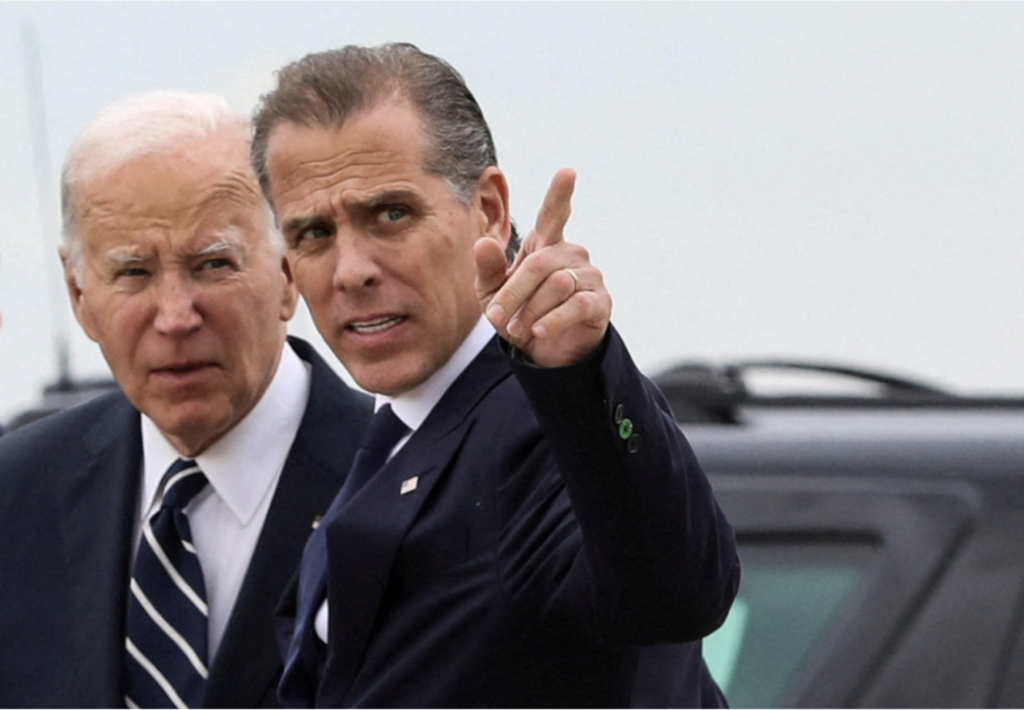Cai Parker ’27

Photo courtesy of Reuters/Anna Rose Layden
Hunter Biden, son of President Joe Biden, was charged with two federal offenses for tax evasion and illegal gun possession. Despite previous pledges to not interfere with Hunter Biden’s trial, Presiden Biden pardoned his son on December 1 after he was convicted, prompting outcries of nepotism and conflict of interest from many Americans.
Hunter Biden’s initial charges included failing to pay over $100,000 in taxes from 2017-2018 as well as illegally possessing a firearm while struggling with a drug addiction. His tax evasion charges were stated as misdemeanors while the gun charge was placed as a felony. In July 2023, a plea deal made by Hunter Biden in which he pleaded guilty to tax evasion intending to provent a long trial collapsed. In June, Hunter Biden was then charged with illegal gun possession, and he pleaded guilty again for the tax evasion charges in September. While President Biden previously pledged to not interfere with the Justice Department’s investigations, he pardoned his son three days before he was to be sentenced.
Michael Whalen, Upper School Teacher and faculty advisor for the Young Republicans, comments, “I think being able to pardon someone is within the purview [as] part of [being] the President of the United States. With that being said, I don’t think it necessarily looks good pardoning your son … there are a lot of people that [have] committed crimes that the President does not pardon … when you pardon your son, it doesn’t look like there’s a lot of equity in the legal system.”
Dr. Melanie Subacus, Chair of the Classics Department and a faculty advisor for the Young Democrats, has a similar viewpoint and worries about implications for the future: “I think that one of the things that Biden’s been criticized for is that he publicly stated he wouldn’t seek to pardon his son and then it’s done so it seems to kind of undercut his message. I also think that it potentially sets up a precedent for pardoning one’s children or family members.”
Elle du Pont ’25, student leader of Young Democrats, speaks on her personal opinion as well: “When you are a president, you do have that power [to make] the right judgment that … Whether Hunter was guilty or not, [leaving] it to the courts to decide is probably the right move. That being said, I do understand President Biden is [on] his way out [with] two months left in office.”
In addition, Whalen shares his concerns over how this act affects Biden’s legacy, “He’s on his way out; I think that tarnishes his lasting reputation. And whether or not you [agree with] a lot of what Biden does, he has done some good for the country. And I think that unfortunately, one of these being one of the last acts of his presidency does tarnish the reputation that one could argue he has and damages kind of what he’s done previously.”
Charlie Casey ’27 also states his thoughts on conflicting moral versus political viewpoints, “If we’re taking a purely moral standpoint, President Biden has had an incredibly hard life. He lost a good part of his family in a car crash, and he lost his other son, Bo, to cancer. So morally, I completely understand a man has been put through the wringer in every sense of the word. However, politically, I feel as though it can’t be accepted. He made a stand previously, saying that it would not cross his mind. He would not abuse his power granted.”
While the pardon raises concerns of nepotism and inequity, actions like those of Biden’s are not unheard of. David Mercante, AP Government and Politics teacher and Model UN advisor explains, “It’s not uncommon for presidents to issue controversial pardons at the end of their administration. Just about every president does it. And you know, some people agree with those pardons, some people disagree with them. It’s a factor of life. I think you know, it’s somewhat telling that even some of President Biden’s total allies have made a critical decision to pardon the son.”
Subacus adds, “I think that in the scheme of things, in terms of what one could be paying attention to politically in our country or globally, that this is not, you know, the biggest issue…He’s not the first president to pardon a family member. You can, of course, make cases. There are other people who may have been unjustly accused of committing a crime, who would be worthy of a pardon…I think you just generally see a divide and a distrust of how the office of president can be used to attack one’s political enemies or to save one’s political allies.”
Overall, many Americans and EA community members disagree with the decision of President Biden pardoning his son. Although controversial, presidential pardons in the final few months of an administration have happened before. The pardon could have significant effects on Biden’s legacy as one of his parting acts as he leaves office, and the further implications of the pardon, including how the decision may affect potential Trump pardons in his second term, have yet to play out.